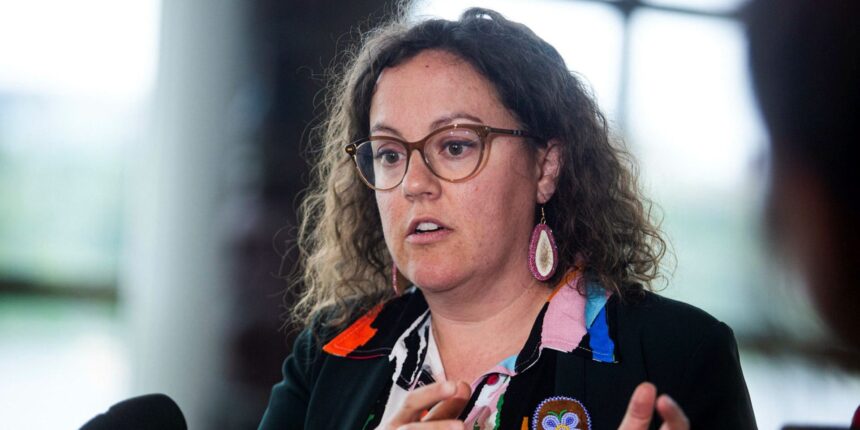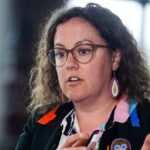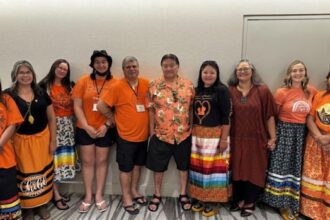In the labyrinth of federal politics, ministerial offices often remain enigmatic power centers where crucial policy decisions take shape far from public view. Today, CO24 can exclusively reveal the complete staff roster for Crown-Indigenous Relations Minister Caroline Alty as her team enters a pivotal 2025 policy agenda focused on reconciliation frameworks and treaty negotiations.
Minister Alty, who assumed office following last year’s cabinet shuffle, has assembled what insiders describe as a “formidable blend of Indigenous policy veterans and emerging voices” to navigate the complex relationship between the federal government and First Nations, Métis, and Inuit communities across Canada.
“The composition of Minister Alty’s team reflects a deliberate strategy to balance institutional knowledge with fresh perspectives,” notes Dr. Rebecca Tallman, Director of Indigenous Governance Studies at University of Toronto. “What’s particularly noteworthy is the increased representation of Indigenous staff members in senior advisory positions compared to previous ministerial configurations.”
Leading the office as Chief of Staff is Michael Cunningham, who brings extensive experience from his previous role as Director of Policy in the Prime Minister’s Office Indigenous Affairs secretariat. Cunningham will oversee daily operations and coordinate the minister’s ambitious legislative agenda, which includes the forthcoming Indigenous Rights Recognition Act slated for parliamentary introduction next spring.
The policy apparatus falls under Deputy Chief of Staff and Director of Policy Jennifer Whitedeer, a member of the Mohawk Nation who previously served as legal counsel to the Assembly of First Nations. Her team includes Senior Policy Advisors Thomas Blackwater and Sarah Robinson, who will focus on specific portfolios including treaty modernization, urban Indigenous frameworks, and reconciliation financing mechanisms.
Communications strategy will be managed by Director of Communications Daniel Pelletier, supported by Press Secretary Avery Chen and Communications Advisor Emma White. This team faces the challenging task of articulating complex policy positions across diverse stakeholder audiences while managing media relations during what analysts predict will be a contentious parliamentary session on resource revenue sharing legislation.
“The communications challenge cannot be understated,” explains political strategist William Morrison. “Minister Alty’s office must simultaneously satisfy Indigenous communities demanding accelerated action while addressing provincial concerns about jurisdictional authority and resource management.”
Regional outreach efforts will be led by Director of Parliamentary Affairs Robert Clearwater, who will coordinate with Regional Affairs Advisors stationed across Canada to maintain relationships with Indigenous leadership councils and ensure community input informs policy development.
Budget and administrative operations fall under the oversight of Director of Operations Jasmine Lee, who previously served in the Department of Finance Indigenous fiscal policy division. Her expertise will prove crucial as the ministry navigates implementation of the $4.2 billion reconciliation funding framework announced in last month’s economic update.
Minister Alty’s personal staff includes Executive Assistant Maria Garcia and Scheduling Assistant Kevin Thompson, who manage the minister’s demanding travel requirements between Ottawa and remote Indigenous communities where direct consultation remains a cornerstone of the ministry’s approach.
This comprehensive staffing reveals a ministry preparing for what many observers consider a defining period in Crown-Indigenous relations. With several landmark court decisions expected in early 2025 regarding territorial rights and consultation requirements, Minister Alty’s team will face immediate tests of their ability to navigate complex intergovernmental dynamics.
Economic implications remain significant, particularly as Canada pursues critical infrastructure and energy projects requiring Indigenous consultation and partnership. The ministry’s staffing choices suggest preparation for intensive negotiations regarding resource development protocols and benefit-sharing frameworks that could reshape business relationships in Canada’s natural resource sectors.
As this newly configured team takes the helm of one of government’s most challenging portfolios, a question emerges that will define their legacy: Can this carefully assembled staff transform centuries of fraught relations into a genuine partnership model, or will institutional constraints once again limit the pace of reconciliation that Indigenous communities have waited generations to achieve?






















